Niche: Explained
In ecology, a niche refers to the specific role or position of an organism within its environment, including its habitat, its interactions with other species, and its unique adaptations. It encompasses the resources the organism uses, how it interacts with other organisms, and its effect on the surrounding environment.
Components of a Niche
A niche includes the following components:
- Habitat: The specific environment where the organism lives.
- Resources: The food, water, shelter, and other essentials the organism needs to survive.
- Interactions: How the organism interacts with other species, including competition, predation, and symbiosis.
- Adaptations: The unique traits and behaviors the organism has developed to survive in its environment.
Types of Niches
There are two main types of niches:
- Fundamental Niche: The full range of conditions and resources an organism can potentially use and the roles it can potentially play in the environment.
- Realized Niche: The actual conditions and resources an organism uses and the roles it plays in the environment, taking into account competition and other environmental factors.
Study Guide: Understanding Niche
Here are some key points to understand about the concept of niche:
- Describe what a niche is and its importance in ecology.
- Explain the components of a niche and how they contribute to an organism's role in its environment.
- Discuss the differences between fundamental and realized niches.
- Give examples of different types of niches in various ecosystems.
- Analyze how changes in a niche can impact an organism and its interactions with other species.
By understanding the concept of niche, one can gain insights into how organisms are uniquely adapted to their environments and how their interactions shape the ecosystems they inhabit.
[Niche] Related Worksheets and Study Guides:
.◂Science Worksheets and Study Guides Fourth Grade. Animal Growth and Reproduction
Study Guide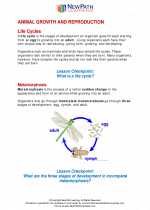 Animal Growth and Reproduction
Animal Growth and Reproduction  Activity Lesson
Activity Lesson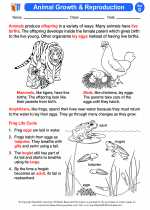 Animal Growth & Reproduction
Animal Growth & Reproduction  Worksheet/Answer key
Worksheet/Answer key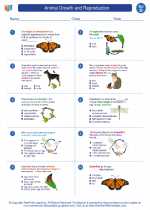 Animal Growth and Reproduction
Animal Growth and Reproduction  Worksheet/Answer key
Worksheet/Answer key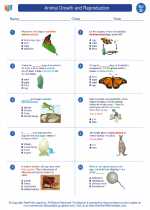 Animal Growth and Reproduction
Animal Growth and Reproduction  Worksheet/Answer key
Worksheet/Answer key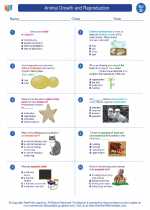 Animal Growth and Reproduction
Animal Growth and Reproduction  Worksheet/Answer key
Worksheet/Answer key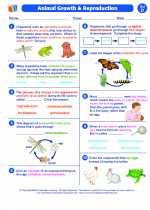 Animal Growth and Reproduction
Animal Growth and Reproduction  Vocabulary/Answer key
Vocabulary/Answer key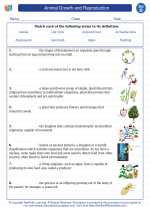 Animal Growth and Reproduction
Animal Growth and Reproduction  Vocabulary/Answer key
Vocabulary/Answer key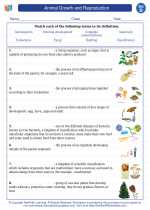 Animal Growth and Reproduction
Animal Growth and Reproduction  Vocabulary/Answer key
Vocabulary/Answer key Animal Growth and Reproduction
Animal Growth and Reproduction  Vocabulary/Answer key
Vocabulary/Answer key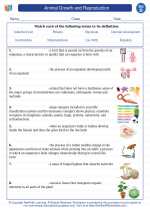 Animal Growth and Reproduction
Animal Growth and Reproduction  Vocabulary/Answer key
Vocabulary/Answer key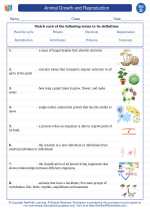 Animal Growth and Reproduction
Animal Growth and Reproduction 

 Activity Lesson
Activity Lesson
 Worksheet/Answer key
Worksheet/Answer key
 Worksheet/Answer key
Worksheet/Answer key
 Worksheet/Answer key
Worksheet/Answer key
 Worksheet/Answer key
Worksheet/Answer key
 Vocabulary/Answer key
Vocabulary/Answer key
 Vocabulary/Answer key
Vocabulary/Answer key
 Vocabulary/Answer key
Vocabulary/Answer key
 Vocabulary/Answer key
Vocabulary/Answer key
 Vocabulary/Answer key
Vocabulary/Answer key

The resources above cover the following skills:
Life Science
Heredity and Reproduction - A. Offspring of plants and animals are similar to, but not exactly like, their parents or each other. B. Life cycles vary among organisms, but reproduction is a major stage in the life cycle of all organisms.
Compare and contrast the major stages in the life cycles of Florida plants and animals, such as those that undergo incomplete and complete metamorphosis, and flowering and nonflowering seed-bearing plants.